Books
Life lessons, corporate lessons, leadership lessons – we are proud to present our coach authors and their published works

Are You Ready for The Corner Office?
-Pradipta K.Mohapatra &Ganesh Chella
This book is a collection of 25 inspiring stories about the unique and personal developmental journey of 25 senior leaders towards the corner office. seen through the eyes of their executive coaches, each of these stories tell us how they found answer to critical questions like am i ready for it, how do i prepare to get there, how do i learn to succeed once i get there and how can i enjoy the journey while i am at it. the term “corner office” is really a metaphor for anything significant that these leaders wanted to achieve in their professional careers and personal lives.
what makes these stories most educative is the manner in which these 25 leaders went about finding answers to these critical questions. they recognised that the answers to these questions were unique to them and their context. they also recognised that the journey to find these answers was very personal and intimate.
They however realised that it need not be lonely. each of them chose to engage in a trust based helping relationship with an executive coach who respected them, listened to them, understood them, asked the right questions to help them gain clarity, challenged them to see their reality differently and supported them in finding those answers and finally put them to use.
They leveraged the helping relationship that was extended to them to solve their problems and realise their unused potential. in the process they left behind their candid and fascinating stories which have helped us unearth twenty four leadership insights collectively cover the three broad developmental contexts – developing competencies, making transitions and addressing executive and entrepreneurial agendas.
This unique collection of coaching stories is meant to inspire, help and educate many, many other leaders who are on a similar quest.
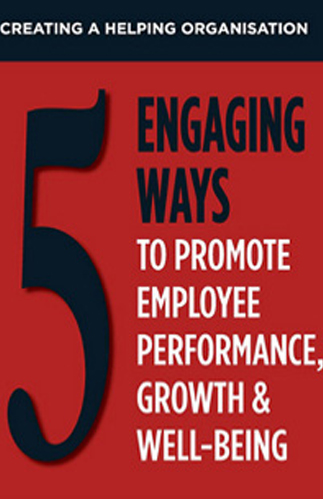
Creating a Helping Organization
-Ganesh Chella
India’s rapid economic growth has led to abundant prosperity for employees. unfortunately, this growth and prosperity has brought socio-cultural shifts that are posing several psychological problems. over a period of time these will become counter productive for organisations that are, today, thriving on the efforts of this work force
To help deal with personal and work related psychological problems employees have so far relied on the rich family support system. friends and informal mentors too have been a major support. as employees migrate to work in other cities, embrace a global identity and become more individualistic, they are leaving behind these support systems. counsellors and coaches can help, but they are yet to gain widespread acceptance.
To address these lacunae and the impending productivity loss managements’ are obligated to create a helping organisation. this book presents a refreshingly new approach to helping tomorrow’s work force today through a 5 – layer helping model.
By creating a helping organisation ceos, hr directors, and managers will discover a path breaking and practical approach to promote employee performance, growth and well being.
Creating a helping organisation is a refreshingly new approach to engaging tomorrow’s workforce!

How Come No One Told Me That?
-Prakash Iyer
There are plenty of self-improvement books out there-books that claim they can change your life. Yet, what makes us better human beings are stories and real-life observations, which can help us get ahead in our careers and, in turn, enrich our lives.
From the bestselling author of The Habit of Winning and The Secret of Leadership comes a new book on life and success. In How Come No One Told Me That?, bestselling author Prakash Iyer shares the stories and observations that have made an immense impact on his life.
The book is divided into ten sections, exploring life lessons, ways of improving oneself, leadership and the importance of doing small things right, among other subjects. Through powerful anecdotes and charming essays, followed by practical, actionable advice, this book will help you make those minor adjustments to your professional and personal lives that can truly make you unstoppable.

You Too Can
-Prakash Iyer
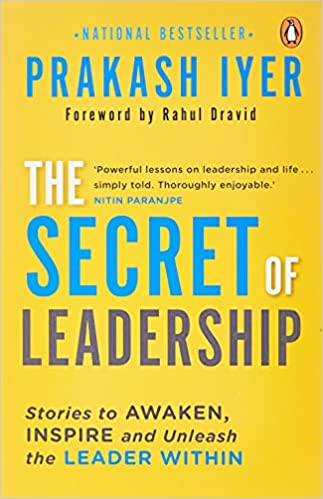
The Secret of Leadership
-Prakash Iyer
Bestselling author Prakash Iyer uses simple but powerful anecdotes and parables from all over the world to demonstrate what makes for effective personal and professional leadership. Iyer draws lessons from sources as diverse as his driver, a mother giraffe, Abraham Lincoln and footballers in the United Kingdom. He shows how an instinct to lead can be acquired while flipping burgers at a fast food chain. All of these stories come together in an explosive cocktail to unleash your inner leader

The Habit Of Winning
-Prakash Iyer

Spring
-Ambi Parameswaran
Spring: a twisted piece of metal that can be pushed, pressed or pulled but which always returns to its original shape or position afterwards.
Rejection is inevitable in every stage of our lives. But what if this inevitability were a tool? What if it could be used as leverage to spring forward at every setback? What if there was a way to systematically process rejection and become a super-spring?
Ambi Parameswaran—best-selling author, brand / leadership coach and former CEO of FCB-Ulka Advertising —was rejected at his dream job interviews, he was denied promotions and clients turned down his business pitches. He now knows that he eventually succeeded because of these rejections and the way he handled them.
Spring is packed with tales of rejection and redemption. Walt Disney, The Beatles, Thomas Alva Edison, Michael Jordan, Dr A.P.J. Abdul Kalam, the founders of Infosys, author Amish and others have used rejections as a pivot to swing their careers and businesses around.
Ambi brings his decades of experience to bear on perhaps the vital life and career lesson you could learn from rejection. In Spring, he puts a gentle arm around your shoulders and helps you bounce back stronger than ever from every rejection.

Sponge
- Ambi Parameswaran
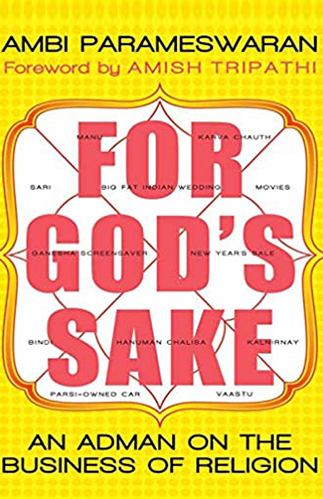
For God's Sake
- Ambi Parameswaran
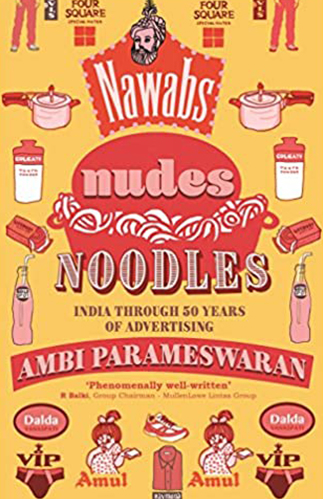
Nawabs, Nudes, Noodles
- Ambi Parameswaran

Glow
-Shekar Rangarajan
- Weaknesses to strength
- Experience with expertise and
- Crisis into an opportunity.

SWITCH
-Srinivas Uppaluri
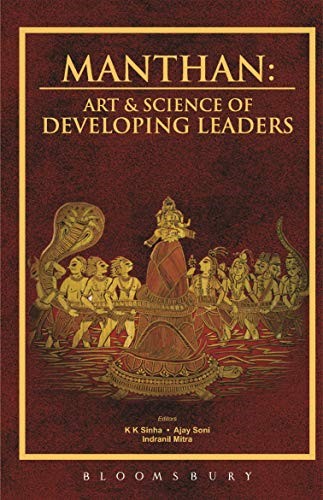
Manthan
- KK Sinha & Ajay Soni
Leaders, who only live in the present and respond to its special pressures and demands, would fail to achieve quality of leadership and the change required in the future. In today’s digital age of the millennial, transparency and social awareness have to be the cornerstones of any organization. Leaders and their HR need to align their current values accordingly. Some fundamentals like truth, humility, courage, energy, edge, equity, social justice will have to be brought back into the organization leadership DNA.
All of us are aware about the spurt in leadership development activities in India over the recent years. There have been frantic efforts in Indian as well as foreign companies to develop leadership quickly across all levels in the organization. The reason of this recent surge lies in the current growth trajectory of Indian companies. Many Indian companies are growing at a rate which is mind-boggling. Companies which grew at 3 to 4 percent per annum for the first 30 years of their history, grew 10 fold or more since the advent of the new millennium.
There are examples of several companies which have expanded phenomenally during the last decade, from Pan-India operations to manufacturing in 5 countries and doing business in 30 countries, increasing their manpower five times more than the number of people they had ever hired. This has put tremendous pressure on companies to develop leadership at all levels in the shortest possible time.
So the natural question that comes up is: what kind of leaders do we need today in India?
When we explore our own past, we expect our leaders be it in the form of god, king, or entrepreneur, to be ‘Sarva Guna Sampanna’, i.e. one who has all identified competencies and qualities required to be the ‘right’ leader. Today the imperative for senior leaders is to keep actualizing the talent in themselves and also in the band of leaders all over, whether leading from the front or middle or behind.

Consulting
-Mohan Kancharla

Design Thinking in Consulting
-Mohan Kancharla
Consulting is an Art, not a Science – Design on the other hand is beyond Art; it’s about pragmatic compromise, not perfection. Design Thinking in literal terms means thinking as a designer would.
Design Thinking as a method is empirical in the sense that it is both experimental and experiential. However, like all methods, it’s not what it is but what you do with it that counts!
Design Thinking is an approach to innovation that is powerful, effective and broadly accessible, which can be integrated into all aspects of products, services, business and society.
Design Thinking in Consulting is structured in three parts along the lines of Roger Martin’s ‘Knowledge Funnel’ moving from Mystery to Heuristic to Algorithm.
Part I | Consulting
Overview of Consulting with a specific focus on Consulting Spectrum and Consulting Cycle for the purpose of this book – The Mystery.
Part II | Design Thinking
Introduction to Design Thinking, the various schools of thought, approaches, tools and techniques analyzed and articulated as a matrix of Principles vs Practices for the purpose of this book – The Heuristic.
Part III | Design Thinking in Consulting
In separate chapters for each of the Consulting Phases, the above Design Thinking Principles and Practices are evaluated to be fit for purpose and further extrapolated to relevant segments of the Consulting Spectrum for the purpose of this book – The Algorithm.
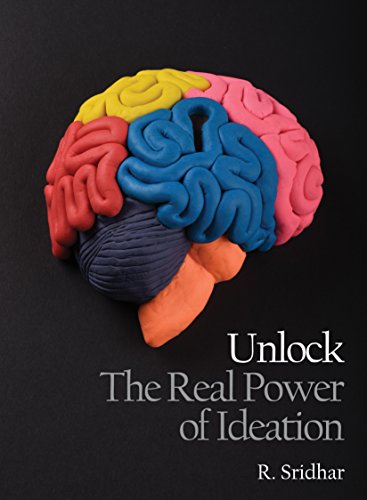
Unlock The Real Power of Ideation
-R. Sridhar
Brainstorming has become an important part of every manager’s job. Technology is accessible to all therefore differentiation is products and services is difficult. There is pressure to think differently solve problems and seize new opportunities.
Brainstorming as a concept was developed by Alex Osborn for generating ideas. In his book “Applied Imagination”. Brainstorming as a process has come a long way. These days the preferred expression is Ideation.
Brainstorming goes beyond advertising. It helps people generate new ideas for FMCG brands, products, and services in B2B. It is simply a way of generating new ideas.
Sridhar’s book Unlock The Real Power Of Ideation addresses the felt need that organizations have. Sridhar has outlined a simple step-by-step process to ensure that your brainstorming delivers results.
Here are a few tips for ensuring your brainstorming/ideation delivers results.
1. Define the problem sharply. One single sentence. Clear and simple.
2. There key stakeholders are – the client, who is looking for ideas. These are managers who need to implement the new ideas. And idea donors who are participating in ideation.
3. Participants – a cross-functional group including the core team. In a group size of 30, there should be a maximum of 6 or 7.
4. Decision-makers/Implementation team. Not more than 5 in a group of 30 people.
5. Use different techniques/triggers to generate ideas. But be clear about what is an idea, what is creativity, and what is innovation.
6. Idea generation is divergence.
7. Selection, shortlisting, and solution development represent convergence.
Most important is to create a climate of psychological safety during ideation. This ensures that we get both quantity and quality of ideas.
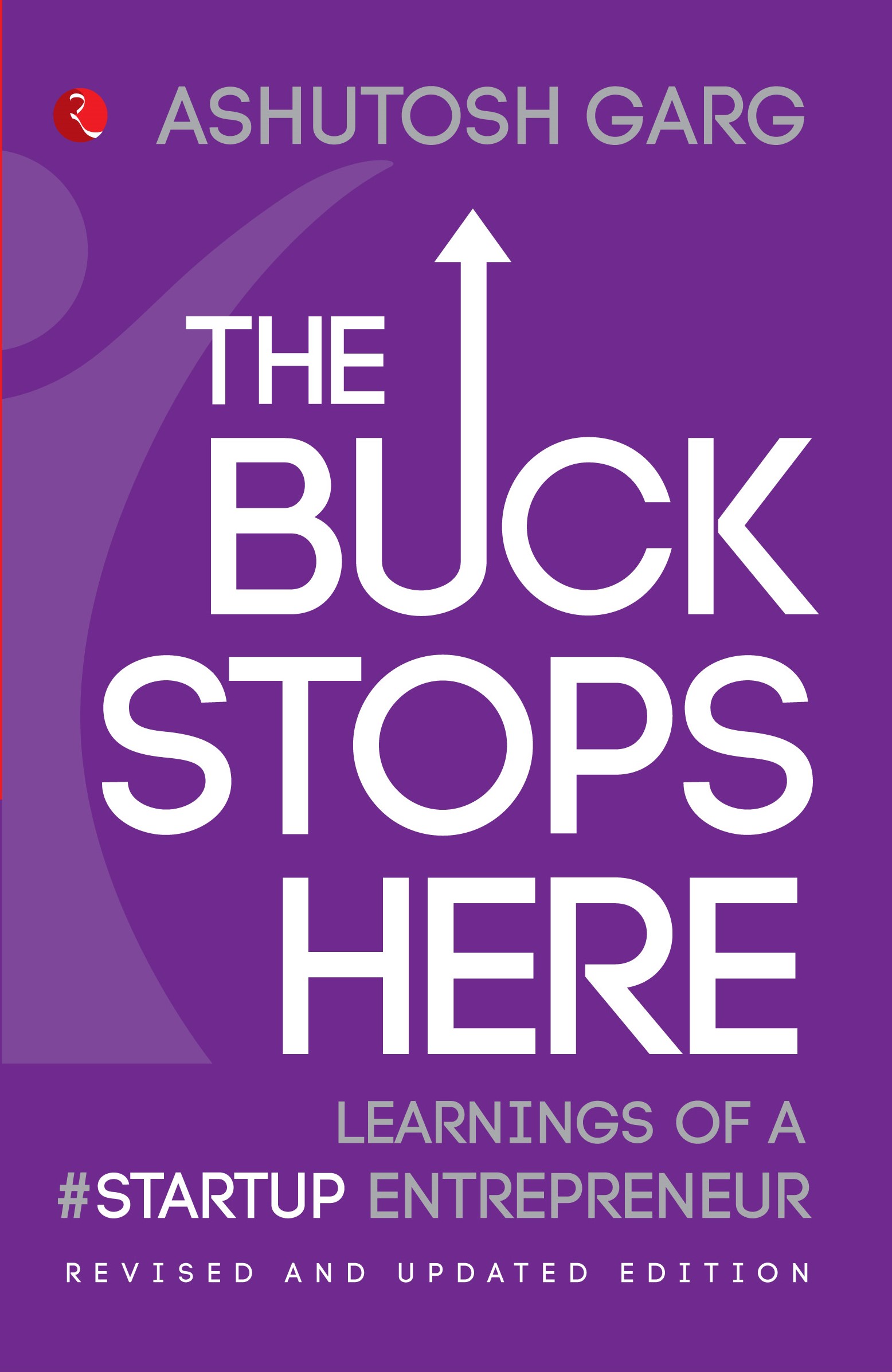
The Buck Stops Here
-Ashutosh Garg
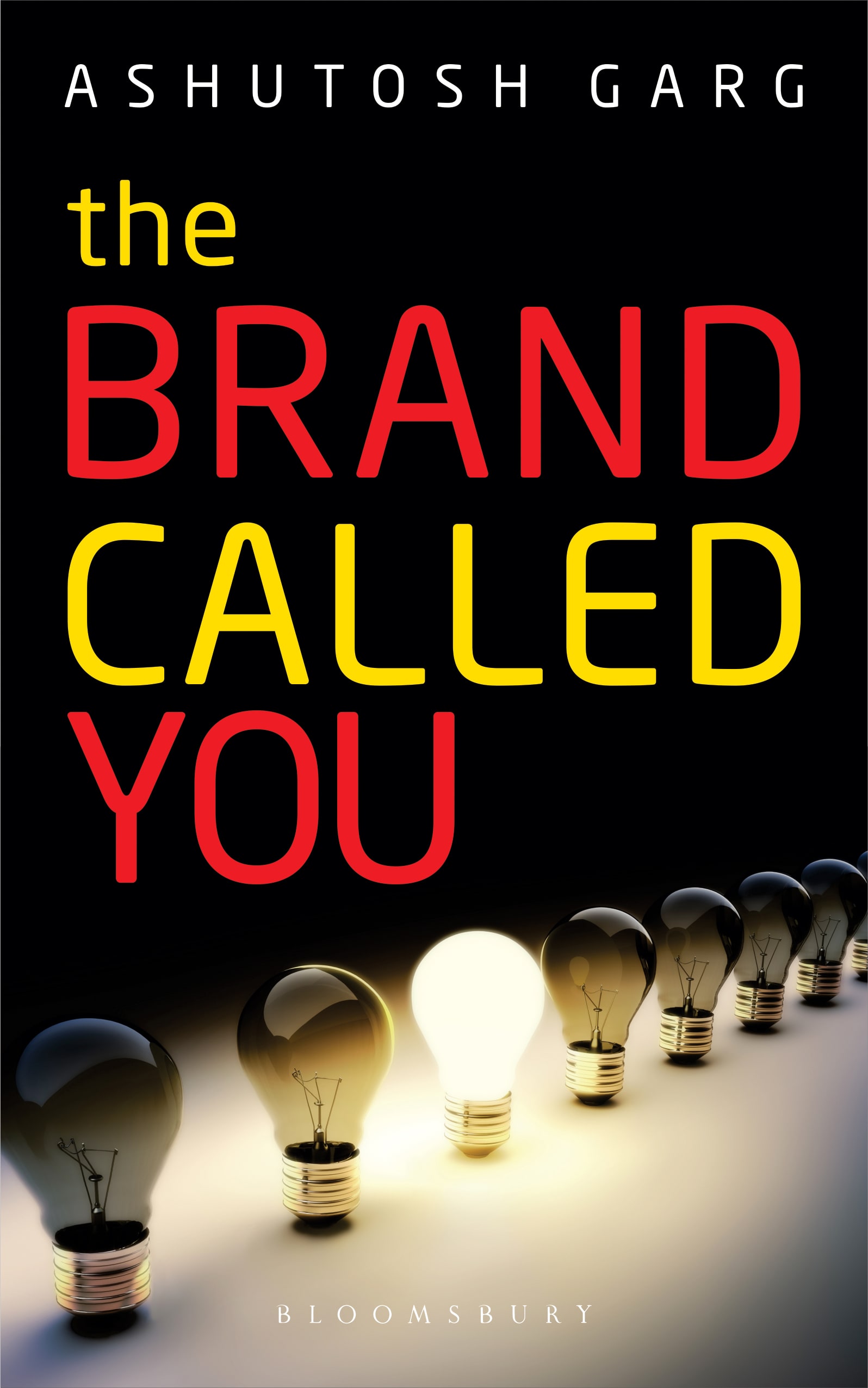
The Brand Called You
-Ashutosh Garg
This book outlines the author’s thoughts about brands and how critical it is for each one of us to invest wisely and consistently in our own name. Remember that our name is a brand that we truly own.
A brand has been registered in our name (through our birth certificate) and patented with our persona (through our deeds and investments) even though there may be hundreds of other individuals with the same name as you.
We are unique, as unique as our fingerprint or our retina scan or your gene sequence. Did you know that more than 90% of our communication is non-verbal? Such communication creates perceptions about us with the people around us.
There is no one else in the World like us.
We need to invest in ourselves, in our environment and in our deeds and actions to get our own brand known and respected. The greater our reach, the greater the investment that would be required by our brand.
Creating, building and developing our personal brand is only in our own hands. Conversely, destroying or diminishing our own brand is also only in our own hands.
What we do with our own brand name could be the difference between being very successful and not so successful. This is as true for personal branding as it is for business branding. Our brand is the essence of our own unique story. The key is reaching deep inside ourselves and pulling out the authentic, unique “me” from within our own self.
Otherwise, our brand will just be a façade and we will wonder whether we recognise the person behind the façade – ourselves.
The only legacy we will leave behind in the World is our name.
This author would like the reader to think about the value of his brand and consciously take steps to build and promote Brand You.
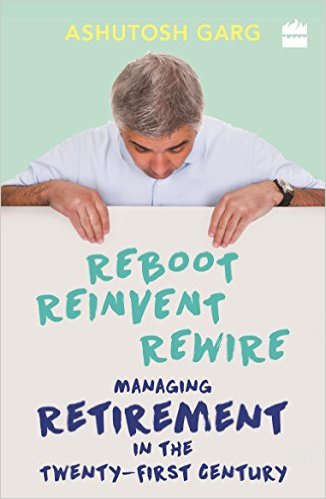
Reboot Reinvent Rewire
-Ashutosh Garg
Today’s 60 is yesterday’s 40. So goes the saying these days.
Yet, all of us have to retire one day from what we are doing today when we reach the
chronological “number” listed out for us in our terms of employment. This could be
anywhere from 58 to 65.
Retirement is a sensitive subject for most of us and only when we reach the age of
retirement do we start to think about it, leave alone plan for it. Given today’s
healthcare facilities, most people will lead almost one third of their lives post
retirement or post the age of 60.
What are the options available to keep yourself occupied and busy? How will
couples adjust to lives together? How much money is enough? Where should you
plan to live? What will happen if adult children come back to live with you? Will you
be able to continue to earn money? What healthcare challenges will you face? And
many more topics.
For the first time in India, the subject of Retirement has been covered in an easy to
read manner. The author, Ashutosh Garg addresses these and more issues on the
subject of retirement. He believes in the title that no one needs to retire in the
traditional sense. What needs to be done is to reinvent, reboot and rewire one’s life.
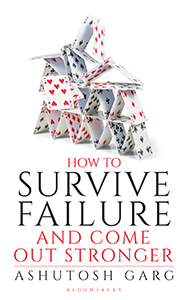
How to Survive Failure and come out Stronger
-Ashutosh Garg
No parent tells their child that it is Okay to Fail.
We love Success! Nobody wishes to fail. We are embarrassed even if we commit a silly mistake.
Failure and Success are two sides of the same coin. Both are relative to one another. One person
can be seen to have failed because they did not succeed. Another person can be seen to have
succeeded because they did not fail.
We say that failure is painful and that it causes emotional turmoil and upset, and inflicts agonizing
pangs of guilt, regret, and remorse. But those who have experienced true failure, and have
bounced back from it, understand that failure is necessary for success. Yes of course, failing hurts.
In fact, it cuts deep like a razor, slicing its way to our inner core. Yet, it is necessary.
No one thinks of the impact on the person who has failed or is likely to fail. Everyone is quick to
pass judgement on the failure and the person who has failed. Everyone has a reason, their own
interpretation, of why the failure has happened.
Parents have a big role to play. Most parents from the developing World teach their children the
importance to “win”. They want us to come “first” in class. To be at the front of the pack. To get
ahead.
This manifests itself in our behaviour patterns as we grow up. We keep telling ourselves that we
must somehow get to the head of the traffic queue at all traffic lights, irrespective of what this may
do to the traffic. What this does to the cars who are queued up in their lanes. The simplistic view is
“who cares”. We have internalised that we must force our way to the front of every queue. We will
stick our hand into the ticket window to get a movie ticket or a train ticket without thinking of the
person who is legitimately in front of us.
This book covers various aspects of failure and helps us understand failure. It covers topics like
Why it is important to fail, Why businesses fail, Why we enjoy seeing others Fail, Superstitions and
Failure, Overcoming Failure and how we can cope with the fear of Failure.
Winston Churchill said, “Success is not final. Failure is not fatal. It is the courage to continue that
counts.”
At the same time, we must remember that repeated failure is not acceptable.
“To err is human, but if the eraser wears out before the pencil, you are overdoing it.”
The book has been written with lots of anecdotes to illustrate Failure and Coping with Failure,
drawn from various sources, including,
1.Scriptures and Mythology
2.Real life examples of business leaders, sportspersons, politicians, companies etc
3.My interviews for my Videocast series The Brand Called You, where I have asked my
guests the question “tell me your biggest learnings from your failures”
4.Osho and other spiritual gurus
